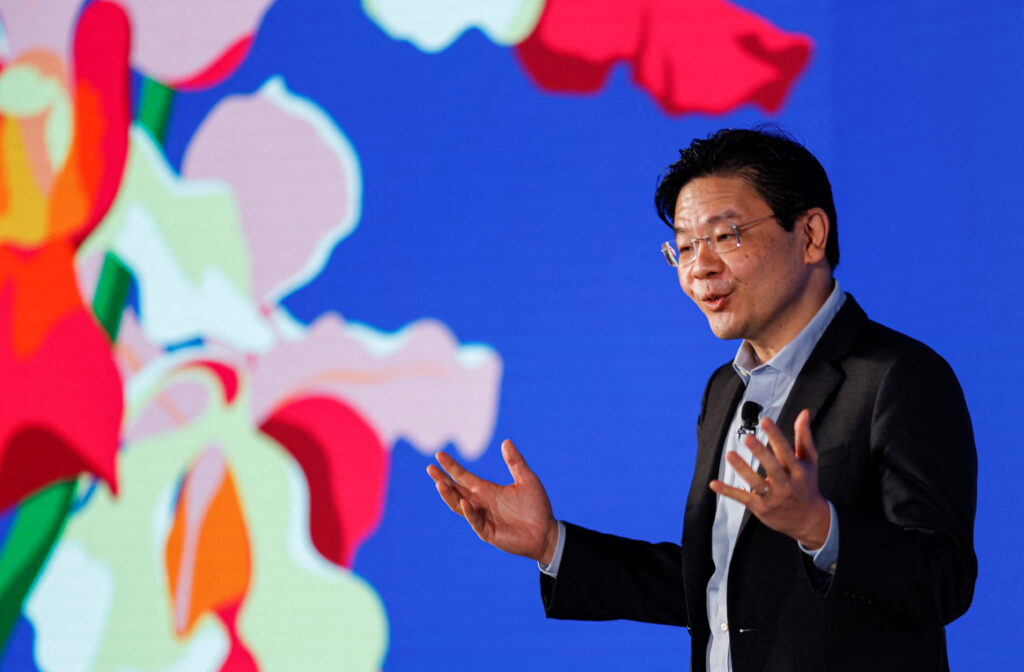For a geographically tiny country with a special combination of political, economic and social features, Singapore has done well to be seen from time to time as the voice of its region.
Singaporean leaders certainly have no monopoly on such regional leadership, as Anwar Ibrahim’s speech in March demonstrates. But Prime Minister Lee Hsien Loong’s address to the Shangri-La Summit in 2019, and to a lesser extent his more recent address to a Chinese audience at the Boao Forum in October 2023, are as good an articulation of the region’s interests in a post post-war order as any made by an Asian political leader in the past decade.
Singapore certainly has a strong history of punching above its weight in global conversations of this kind. In the 1990s, a then recently-retired prime minister Lee Kuan Yew was instrumental in giving the so-called ‘Asian values’ thesis a prime spot in the debate about the sources of social and economic success and the trajectory of global politics after the Cold War.
The Asian values thesis was vigorously contested at the time and many aspects of it have aged poorly. But the thing to emphasise is that Singaporean leaders and intellectuals were taken seriously because they came to the debate with credibility in the bank — earnt through stunning successes in economic modernisation and state-building.
It’s for similar reasons that when Singaporean leaders speak about the region’s future, the region and the world listens. Singapore can act as an honest broker in the marketplace of ideas about Asia’s future because the city-state practises what it preaches on the big issues: pragmatic accommodation to China’s rising power, support for the institutions and norms of the liberal international order and the cautious management of often-troublesome relations with neighbours while being careful not to get out in front of its larger Southeast Asian neighbours in claiming a leadership role in ASEAN.
If there is one legacy that Prime Minister Lee leaves as he prepares to hand over the prime ministership to Lawrence Wong on 15 May, it’s this stock of credibility on foreign policy to leverage in advocating for Singaporean and Southeast Asian interests in the international stage.
Where things get less straightforward is on the home front. As Michael Barr writes in this week’s lead article, ‘Wong’, a former senior public servant and chief aide to Lee, ‘is the epitome of technocratic continuity’ and as ‘the only senior member of Cabinet who does not come from a privileged family background’ he is thought to have the ‘common touch’ that eludes much of the People’s Action Party (PAP) elite.
A more down-to-earth leader might come in handy as the PAP prepares for a general election that must be called before November 2025, in the context of voters’ grumbles about the rising costs of living and the policy dilemmas arising from the need to balance the social impacts of immigration with the economic benefits of maintaining Singapore’s status as a hub for white-collar talent.
The PAP had a historically poor showing — its vote dipped below the 60 per cent mark — at the last general election in 2020 and Barr predicts that the urge to make that result a pandemic-era anomaly will encourage a wave of voter-targeted spending.
But hip-pocket concerns are only part of the reason for the PAP to worry.
Opinion polls directly gauging support for the opposition aren’t publicly available — and would in any case be a poor predictor of election outcomes given how well the PAP has crafted the electoral system to make its parliamentary supermajority impervious to swings in the popular vote. But what research by the Lee Kuan Yew School of Public Policy does reveal is that there is a growing openness for alternatives to the PAP, ironically concentrated among those who’ve done the best out of the economy the PAP built: younger, better educated and higher-earning Singaporeans. More and more of them want a government that combines the PAP’s technocratic prowess with less of its born-to-rule impatience with dissenters.
Certainly, the late Lee years have seen a brute-force approach to organised opposition and critical opinion. To Barr, this is all ‘indicative of the level of insecurity in Cabinet’ about its ability to dictate political outcomes in the most contested political environment Singapore has seen in decades.
Apart from how Lawrence Wong secures Singapore’s global interests on the international stage, and satisfies growing public expectations for a bigger social safety net and more equal society, there will be great interest in whether he recognises the diminishing returns to repression over the longer term — in an environment where an increasing share of voters place a priority on enjoying the first-world freedoms the PAP is inclined to deny to match the first-world economy it has also delivered so successfully.
The EAF Editorial Board is located in the Crawford School of Public Policy, College of Asia and the Pacific, The Australian National University.

